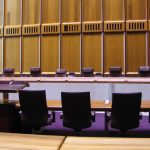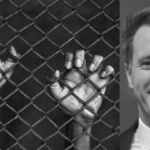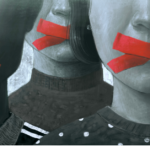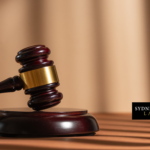Police Are Now Arresting Our Elderly for Protesting
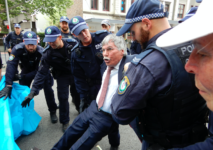
In recent years, both our federal government and state and territory governments have passed sweeping laws to ensure those who speak against them or protest about their activities are silenced and criminalised.
These laws come in many forms, imposing lengthy prison sentences for those who report about human rights abuses in detention centres, blow the whistle on corruption in government departments or who protest on the streets to bring about change.
Extinction Rebellion protests
In recent months, large numbers of Australians have joined global protests against the climate change inactivity of our governments, standing up to protect the future of our children.
And this week, Aussies of all ages – the elderly, the middle-aged, teenagers, children – and all economic, social, religious and ethnic backgrounds have joined the Extinction Rebellion protests.
But protesters should be aware that the freedom of citizens to protest has been significantly curtailed in recent years, to the point where police are now empowered to arrest and criminally prosecute peaceful protesters.
These powers were put into practise on Monday, with police arresting around 30 people – including the elderly – for protesting against the inaction of our governments when it comes to protecting our environment.
Here are some of the newest laws to be passed, or about to be passed, across the country.
Queensland
Queensland has proposed two new amendments this year: increased trespass penalties aimed at animal welfare protests, and the lock-on laws, that is the use of a purpose-designed “dangerous attachment device to disrupt lawful activities”, referring to the Extinction Rebellion tactic of locking on to railways and roads, which will attract a $6,500 fine or two years’ imprisonment.
It has also introduced biosecurity regulations with on-the-spot fines for entering an agricultural premises.
Western Australia
Western Australia is also considering increased penalties for trespass, reforms aimed at animal welfare protesters, who have been described by the described by the attorney general as “mushy-headed vegans”.
Victoria
Victoria is holding a parliamentary inquiry to determine if it ought to strengthen trespass laws, following uproar over a $1 fine levied against an activist who stole a goat from a Gippsland cheese cafe.
Added to this, Home Affairs Minister Peter Dutton is waving his clout around on social media, publicly calling protestors a “scourge” and going so far as to encourage Australians to ‘name and shame’ protestors. He is also a vocal – and powerful – proponent of tougher anti-protest laws.
What happened to our right to protest?
Throughout history protesters have been critical agitators. They have been considered ‘movers and shakers’ who passionately believe in something enough to stand up for it, and draw attention to it, whether it be a social, cultural, religious or political issue.
Protestors have an important role – one that puts issues into the spotlight where they can be highlighted and debated.
However, it is important to note that the Australian Constitution does not guarantee the right to peaceful protest, and our nation does not have a national Charter or Bill of Rights to protect this fundamental component of a democracy.
All of this means we do not actually have a ‘right’ to protest in Australia, and governments have seen fit to criminalise the act in a range of circumstances – thereby suppressing criticism and opinions unfavourable to them.
It would take a High Court challenge to fight these laws, on the ground they unjustifiably breach ‘freedom of political opinion’ which has been implied by the justices of that court into our Constitution.
This week’s protests
This week’s global movement Extinction Rebellion is hosting events in various locations around the world. Here in Australia, dozens of protesters have been arrested and charged for peacefully protesting on the ground they have been blocking traffic.
At Monday’s protests in Sydney’s popular shopping and business district Broadway, local police chief Mick Willing, said, “while police respect the right of individuals and groups to protest, we have a responsibility to the community and local businesses to ensure they can go about their normal activities without being impacted on or put at risk.”
He also warned that: “anyone who chooses to flout the rules and cause trouble should expect to feel the full force of the law.”
But surely, disruption, many would argue, is precisely the point. Without it, can protesters actually be heard?
Many politicians and police officers say they respect ‘peaceful’ protest. But many would state that sitting in, chanting and waving flags is exactly that – peaceful, non-violent protest, something which – although it may cause inconvenience for a relatively short period of time – is a hallmark of democratic society.
Protesting in New South Wales
Over the past few years in NSW, police have been allocated increasing budgets, weaponry, authority and physical manpower to shut down protests as well as ‘disperse’ large gatherings.
These have been touted to the general public as necessary for fighting the terrorism threat. But each of these have impacted a great deal of the way we live – the way we move about large events and music festivals, for example. Using heavy-handed tactics to arrest people for taking a stand.
New South Wales has also introduced new $1,000 on-the-spot penalties through biosecurity regulations. The new farm trespass bill currently before Parliament has been heavily criticised for its broad trespass definitions and penalties.
The proposed NSW laws, like new federal laws passed in August, are targeted at “farm invasion” protests from animal activists who have targeted abattoirs, factory farming operations and family-run farms in the past 18-months.
They make use of the Inclosed Lands Protection Act which are very broad by definition and can therefore target protests on environmental grounds, including anti-mining protests.
That act was amended in 2016 by the pro-mining Baird Government to introduce a $5,500 penalty for aggravated unlawful entry to inclosed lands. It was due to be up for review next month, but that review has now been superseded by the proposed Right to Farm Bill.
The proposed amendments would increase the penalty for aggravated trespass to $13,200 or 12 months’ prison. If a person was accompanied by two or more other people, or taken to be interfering with the conduct of the business, they would face a $22,000 fine or three years’ jail.
According to the definitions, inclosed land is any land that has a fence around it, including a temporary fence, and includes public land, such as state parliament.
There is, however, a potential weak spot in the new legislation.
Freedom of political communication – a way to fight the laws
As stated, the justices of the High Court have implied a limited freedom of political communication into our Constitution.
To explain, section 7 of the Constitution says that the Senate should be composed of senators “directly chosen by the people of the State”, while section 8 similarly states that the House of Representatives “shall be composed of members directly chosen by the people.”
In the case of the Australian Capital Television v Commonwealth (1992), the High Court used these two provisions to find that the Constitution brought into existence a system of government where the people directly elect those who are in power.
This means that members of parliament are representatives of the people, and need to be chosen by, and accountable, the public. This, in turn, necessitates freedom of political communication.
Freedom of political communication is the only way that a citizen can:
“communicate his or her views… criticize government decisions and actions, seek to bring about change, call for action where none has been taken and in this way influence the elected representatives… Absent such a freedom of communication, representative government would fail to achieve its purpose, namely, government by the people through their elected representatives.”
The freedom is not restricted merely between the public and government – it extends to political communications between individuals and groups within the community.
People cannot make informed decisions unless they have access to information, and public discussion is seen as an essential element of our political process.
Limitations to the freedom
Of course, freedom of political communication is not completely unfettered – and this is not a bad thing. Hate speech and defamation are examples of what many would consider to be beyond the limits of free speech.
But not all encroachments are this clear cut, so what is the test for deciding whether or not certain communications can be banned?
The test is contained the case of Lange v Australian Broadcasting Corporation (1997), also known as the “Political Free Speech Case.” The judges in that case ruled that the curtailment of the freedom was allowed if the enacted law satisfied a legitimate purpose and fulfilled two conditions:
- It is compatible with the maintenance of the representative and responsible government mandated by the Constitution, and
- It is “reasonably appropriate and adapted” to the fulfilment of a legitimate purpose.
The judges in Lange found that “the freedom of communication which the Constitution protects is not absolute. It is limited to what is necessary for the effective operation of that system of representative and responsible government provided for by the Constitution.”
There is certainly an argument that NSW anti-protest laws contravene the implied right of political communication, because they unjustifiably curtail the ability of citizens to freely express political views.
Indeed, this was former Greens MP Bob Brown’s argument when he challenged Tasmania’s anti-protest laws in the High Court – and won.
Only time will tell whether there will be a similar challenge in our state.





